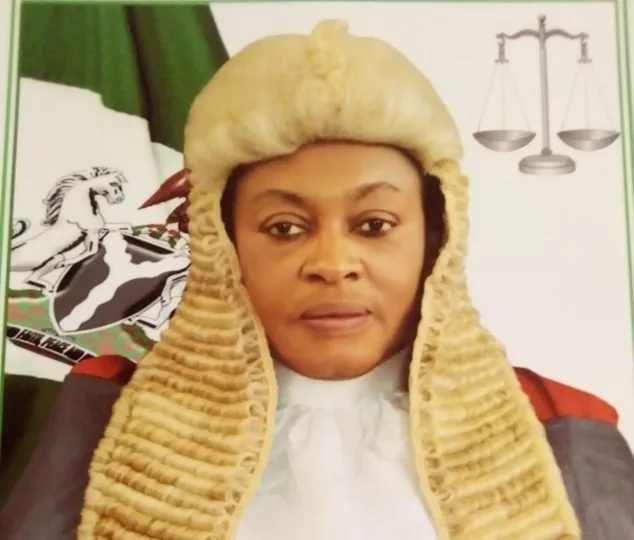The Chief Judge of Bauchi State, Justice Rabi Talatu Umar, has expressed serious concerns about the increasing number of cases involving witchcraft, which have recently dominated the courtrooms in the state. According to Justice Umar, these cases are proving to be a challenging and persistent issue in the legal system, with few clear answers or reliable ways to handle them in the courts.
Justice Umar made these comments during her visit to the Jama’are Maximum Correctional Centre as part of a two-day routine inspection of awaiting trial inmates. The visit was part of the quarterly review carried out by the Administration of Justice Committee, a group that oversees various aspects of the judicial system, including the condition of correctional facilities.
During her visit, Justice Umar spoke candidly about the growing number of witchcraft-related cases, which have become a serious problem in the state’s courts. “If you are not a witch, you cannot identify one. It is an issue that is difficult to prove unless the accused confesses,” she said. The Chief Judge highlighted that witchcraft accusations often arise from local beliefs and suspicions, making it difficult to handle them fairly in the context of the legal system.
This is not the first time witchcraft cases have been a source of concern in Nigeria, particularly in northern states. In many communities, witchcraft is not just a cultural or religious belief but also a legal issue. Many people in the region believe in supernatural forces, and accusations of witchcraft can sometimes lead to serious legal consequences, including imprisonment.
The administration of justice in such cases is fraught with difficulty. In a criminal justice system where evidence is key to proving guilt, witchcraft allegations often lack concrete proof. This leaves judges and magistrates with limited options when it comes to delivering fair and just rulings. As Justice Umar pointed out, the challenge is even greater in the absence of tangible evidence, as witchcraft cases often rely on the confession of the accused, which may be coerced or unreliable.
While addressing the court staff, Justice Umar also raised concerns over the practice of imposing heavy fines and compensation on convicts, especially in cases where fines are seen as an alternative to imprisonment. She pointed out that high fines, such as those reaching N100,000, N200,000, or even N300,000, are not only unreasonable but could also prolong the time convicts spend in correctional facilities.
“I am troubled by the trend of excessive compensation imposed by judges,” Justice Umar remarked. “Where do you expect a convict to get such large sums? If they cannot pay, they may resort to crime again upon release just to meet the court’s demands,” she explained.
The Chief Judge has made it clear that any judge who imposes unreasonable fines will be held accountable, with a warning that they may be required to personally settle the amount. This is part of her broader push to ensure that fines are fair, balanced, and in line with the offender’s ability to pay. She emphasised that judges should consider both justice and mercy when deciding on appropriate sentences.
For instance, she pointed out that it is almost impossible for victims to fully recover stolen or lost property, especially in cases where the accused has already spent time in prison. “When sentencing a convict, consider the punishment they have already served. If they have been imprisoned for two or three years, requiring them to repay the full value of stolen items could be unfair,” Justice Umar explained.
During her visit, Justice Umar also ordered the release of 18 inmates who had been awaiting trial for prolonged periods. These inmates were being held at various correctional centres, including Jama’are Maximum Correctional Centre, Bauchi Custodial Centre, Ningi Correctional Centre, and Misau Correctional Centre.
Addressing the released inmates, Justice Umar stated, “You have been in custody for too long without being charged or taken to court. Even if convicted, your sentence would not have exceeded the time already spent here. That is why this committee has decided to release you unconditionally.”
The Chief Judge encouraged the released inmates to reflect on their experiences and use their time in prison as an opportunity to reform and prepare for a better future. She urged them to acquire skills that would help them reintegrate into society and lead productive lives.
The release of these inmates comes at a time when there is increasing pressure to address the issue of prolonged detention without trial in Nigerian prisons. Many inmates in the country’s correctional centres are held for extended periods without being formally charged, leading to overcrowding and poor conditions in the facilities. Human rights organisations have repeatedly called for reforms to ensure that individuals awaiting trial are not held for unreasonable periods of time.

